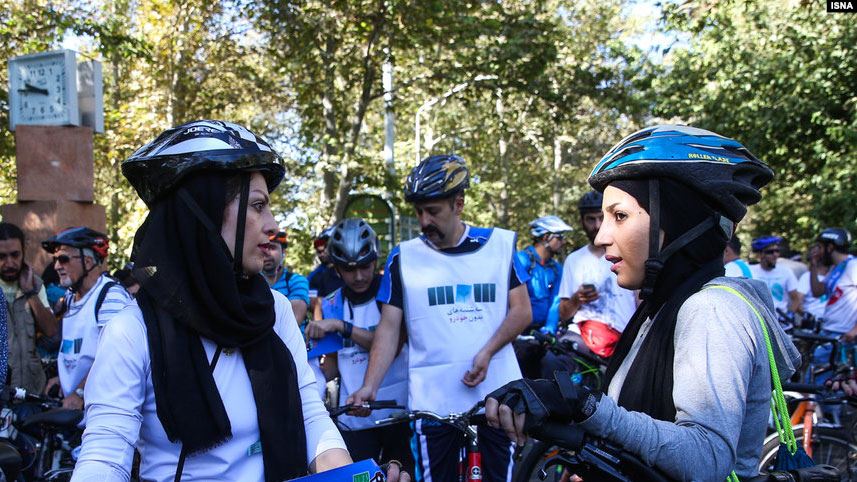A bike campaign
In the autumn of 2015, a young environmentalist in Arak, a city with pollution levels as staggering as those in Tehran, started a “car-free Tuesday” campaign to encourage people to commute by bike. The campaign soon turned popular with municipal authorities across the country beginning to encourage residents to ride bikes and leave their cars at home.
Women cyclists, naturally, saw an opportunity to support a good cause that everybody in Iran could agree on: clean air. They thought they could cycle like other male citizens if they respected Iran’s strict dress code, which requires women to cover their hair and body in public. The campaign was soon aborted after a group of female cyclists were detained in the western city of Marivan following criticism from the city’s Friday Prayers leader. The women were released the same day, but only after they signed pledges not to cycle again.
In 2016 the supreme leader Ali Khamenei appeared to settle the issue once and for all with a fatwa that did not seem to have any legal basis; banning women from cycling in public. Stating that: “women were allowed to ride bikes, just not in public.”
Not exactly Saudi Arabia, but equally disgraceful
Women in Iran are long being treated as second class citizens. They are banned from attending public sport matches, travelling abroad without the permission of their male relatives and even receiving less in insurance money than their male counterparts.
The 1979 Iranian revolution seemed to have brought distressing levels of gender discrimination and misogyny. Khamenei will eventually join the ash heap of history, like all other dictators have, but the culture of feminism might prove to be more challenging to the established Iranian religious-conservatives than they could possibly imagine.
The way forward
Creating conversations about these types of issues and using peaceful civil disobedience are the next logical steps forward. The male-dominated Iranian establishment needs to understand that their outdated beliefs can no longer be forced upon a population of 81 million. It is time that Iran, and all other religious nations around the globe, understand that religion can no longer be used to promote violence, bigotry and intolerance.
UN-aligned is dedicating this piece to all the men and women who have demonstrated their courage in resisting the evil attempts of the Iranian regime to suppress their fundamental rights. They will be remembered by generations to come.




















